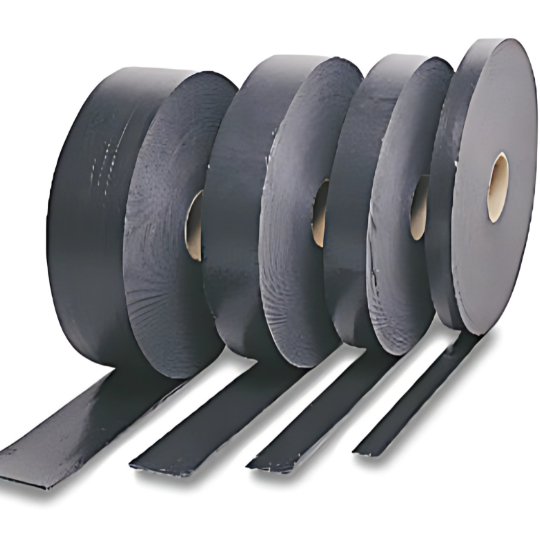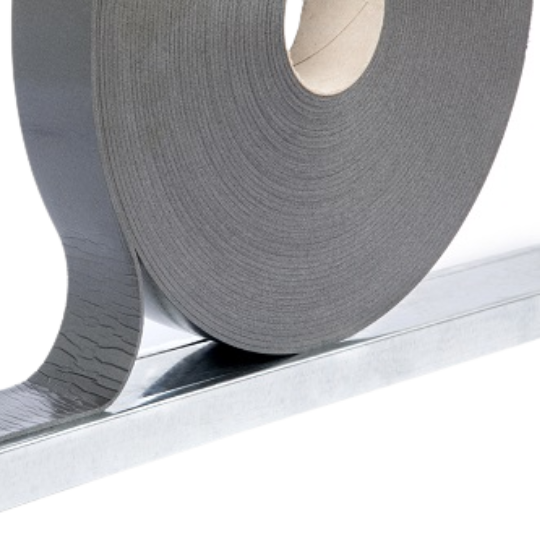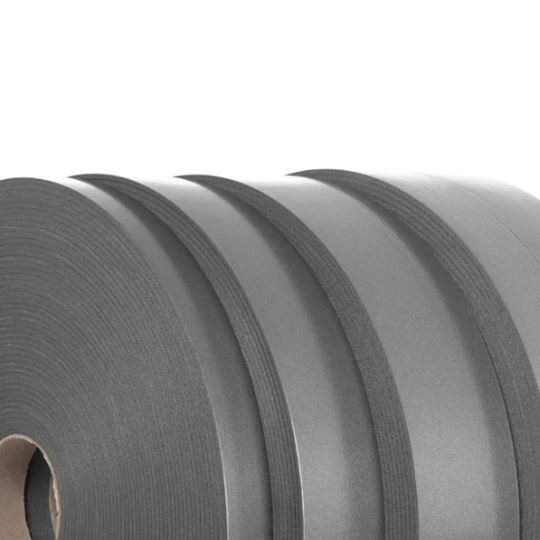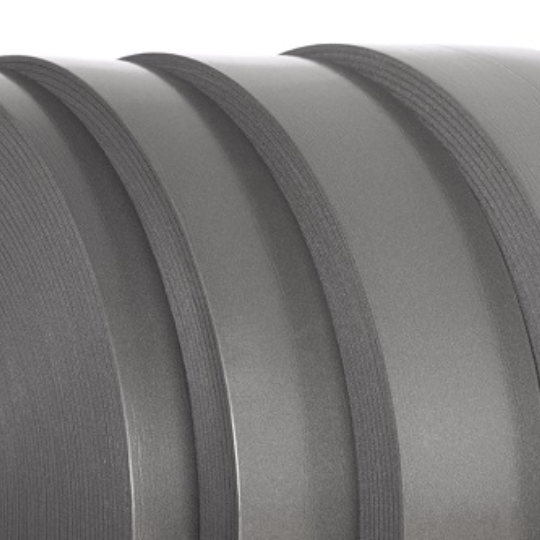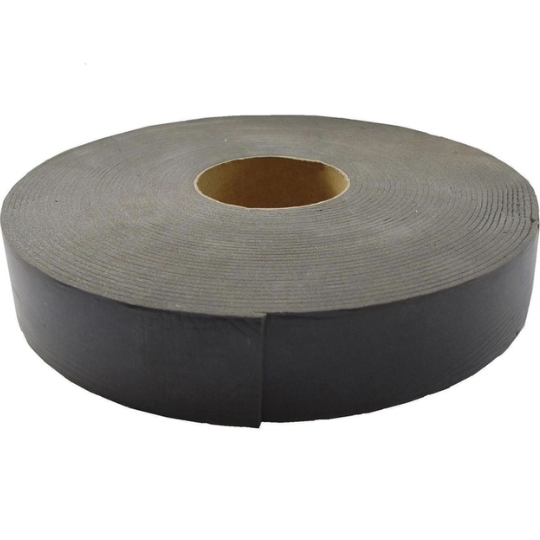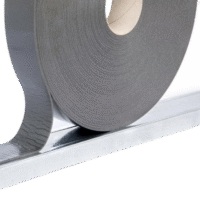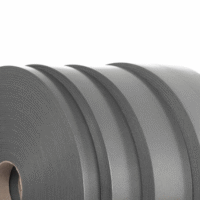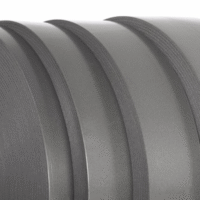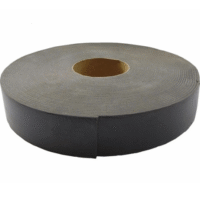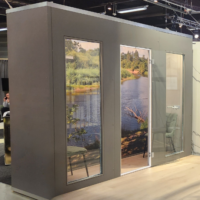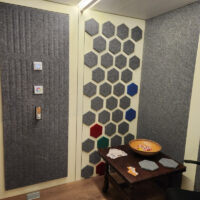Frame seal PE, self-adhesive
Self-expanding polyurethane seal
13.00 € Includes VAT
| Quantity | Discount | Discounted price |
| 1 | - | 13.00 € |
| 2 - 5 | 2.5% | 12.68 € |
| 6 - 10 | 5% | 12.35 € |
| 11 + | 7.5% | 12.03 € |
Hinnad sisaldavad käibemaksu
Frame Seal PE, self-adhesive – a polyethylene-based, self-adhesive, elastic, single-sided adhesive, waterproof, closed-cell polyethylene strip with good adhesion and easy installation. The thickness and width of the seal are customized according to the customer’s request
Properties. Sound-insulating and elastic. Underside reinforced with adhesive tape backed by fiberglass mesh. Expands through diffusion, forming a weatherproof seal. Minimizes the risk of mold and rot on contact surfaces. UV-resistant and allows joints to breathe
Applications:
⇒ In the construction of lightweight partition walls from gypsum board on metal frames
⇒ For sealing and sound insulation between various other construction elements
⇒ For insulation between facade panel materials and wooden or metal frames, including in plinth areas and during sandwich panel installation
⇒ For lighter glazing applications
⇒ For sealing wall modules: improves acoustics and thermal insulation
Installation:
⇒ Surfaces to be sealed/connected must be clean, dry, and square
⇒ It is recommended to select the seal dimensions according to the data provided below to achieve the required joint tightness. Possible structural displacements should also be taken into account
⇒ When continuing the seal, the ends must be pressed together; overlapping of seals should be avoided
⇒ Recommended installation temperature: +5 °C to +40 °C. The seal should be stored at room temperature
⇒ Do not clean with pressure or strongly acidic solutions!
Sealing strip dimensions Length: 25,000 mm (25 meters), width: 35 mm. Thickness: 2 mm
Color. Black (anthracite grey)
Material Elastic closed-cell polyethylene foam, coated on the underside with high-adhesion synthetic rubber adhesive (hot-melt), and covered on the top side with a protective, non-removable silicone foil
Roll Quantity : 25 m with 2 mm thickness
Frame Seal PE (Self-Adhesive), Technical Specifications:
⇒ Density approx. 30 kg/m³, according to ISO 845
⇒ Water absorption < 1%
⇒ Highly resistant to high humidity
⇒ Temperature resistance: –30 °C to +80 °C
⇒ Materjali tõmbetugevus pikisuunas 325 kPa, ristisuunas 220 kPa, ISO 1926
⇒ Compressive strength at 50% deformation: 98 kPa, according to ISO 844
⇒ Material compression: 12% (at 23 °C; 22 h; 25% compression; measured after 24 h), 20% (measured after 0.5 h), according to ISO 1856-B
| Weight | 0.3 kg |
|---|---|
| Dimensions | 25000 × 35 × 2 mm |
| Plasterboard | none |
| Finish | none |
| Sound | 0.3s 500Hz |
| Materials | PE |
| Seal | 3×35 mm, PE, self-adhesive |
| Author | Kipsik |
| Manufacturer | Fixus Trade |
| Origin | France |
You may be interested in…
551.75 € Original price was: 551.75 €.525.00 €Current price is: 525.00 €. Includes VAT

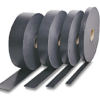
13.00 € Includes VAT

